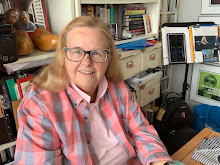
Jubilation as Toronto gets Pan Am shot
November 07, 2009

Canadian athletes prepare for the final hour-long pitch to the Pan American Sports Organization in Guadalajara on Friday as Mounties stand by.
ALEJANDRO ACOSTA/REUTERSGUADALAJARA, MEXICO–It started with cocktails in an Annex backyard, in a city desperate to shed its loser label.
It was the fall of 2005, and Bob Richardson, a key organizer in the failed 2008 Olympic bid, wanted to help out his old Carleton University roommate, Jim Watson, who had just been appointed Ontario's health promotion minister.
Ontario had fallen behind with its sports facilities. Our pools, rinks, running tracks and arenas were failing future athletes.
A decision was made. The gathering of 20, several Olympians among them, realized the only way to secure the money needed to transform the sports scene was to win a major international event.
On Friday, the idea conceived four years earlier at Richardson's house became a reality when Toronto was awarded the 2015 Pan Am Games.
When Pan American Sports Organization president Mario Vazquez Rana announced Toronto was the winner, the bid team jumped, cheered and screamed for joy. The relief was palpable. Toronto was no longer a loser.
Now, "People can say, `We got something," said bid chair David Peterson.
"Now we can turn this into something big. If you think big and you have big dreams, this can be a mood changer for Hamilton, a mood changer for Toronto, and a mood changer for Ontario."
It was all done with a $2.4 billion bid involving venues from Welland to Oshawa and calling for new aquatic centres and stadiums, plus an athletes' village – later to be turned into affordable housing – near Toronto's eastern waterfront.
The vote wasn't close: Toronto's 33 votes blew away the competition in the first ballot. Lima, Peru, got 11 votes, and Bogota, Colombia, had seven.
After nearly 18 months of lobbying that sent them criss-crossing the hemisphere for votes from the 42 members of the Pan American Sports Organization, the bid team arrived in Mexico this week both hopeful and optimistic.
While arguing the city had the best technical bid, organizers were reluctant to talk about a win, fearing it might jinx our chances or even backfire if the city seemed too confident. Toronto had been down this road before, with two failed Olympic bids.
"You have to be very circumspect," said bid chair David Peterson.
But when it became clear there would only be one round of voting, Toronto's organizers became more confident, letting out some expectant hope that a win was finally within their grasp.
As the ballots were being sorted into three piles at the front of an enormous hotel ballroom, one pile was clearly much bigger.
"I was trying to follow the pen as (an official) was writing the name of city beside the pile and the number 31," said Jagoda Pike, the bid's chief operating officer.
"When they announced, my heart stopped."
It was actually 33. Bid chair David Peterson and Premier Dalton McGuinty were among the first on stage to celebrate.
The room was electric, just as it had been earlier in the day when Toronto made its final sales pitch, a crucial hour-long presentation that can sometimes knock a city out of contention.
After rehearsing over and over, the team of athletes and politicians hit it out of the park, with a passion. It opened with gymnasts, volleyball players and a tennis player bouncing into the ballroom, followed by a 60-strong delegation dressed in smart black blazers with the bid crest.
Interspersed through the show were videos from athletes across the hemisphere extolling Toronto's benefits, including the world's fastest man, Jamaica's Usain Bolt, who was in town last summer.
The final video offered a moving tale of what the Games might be: youngsters from across the Americas and Caribbean training and growing up to compete in Toronto in 2015.
"It makes me cry every time I see it," said Peterson, adding he told staff that if it didn't make him weep, the team wouldn't show it.
Toronto's hour drew hearty applause throughout, unlike Bogota's and Lima's more formal presentations, which featured wrap-up speeches from their national presidents: Colombia's Alvaro Uribe and Peru's Alan Garcia.
The Canadian politicians were all smiles afterward.
"It's a moment of tremendous celebration for us," McGuinty told the delegates. "Our promise is to present you with the best Pan Am Games ever."
Also grinning was Mayor David Miller, who had been initially reluctant to sign on after a previous world's fair bid – ironically also for 2015 – failed to get off the ground because of senior government squabbling over debt guarantees.
"I was always a little nervous. Bitten once, twice shy," said Miller.
But this time, Ottawa and Queen's Park agreed to put up $500 million each, with the province promising to cover any cost overruns. The 14 municipalities with venues are putting up their own shares.
LIST OF COUNTRIES THAT PARTICIPATE IN PAN AM GAMES:
Antigua and Barbuda (ATG)
Argentina (ARG)
Aruba (ARU)
Bahamas (BAH)
Barbados (BAR)
Belize (BIZ)
Bermuda (BER)
Bolivia (BOL)
Brazil (BRA)
British Virgin Islands (IVB)
Canada (CAN)
Cayman Islands (CAY)
Chile (CHI)
Colombia (COL)
Costa Rica (CRC)
Cuba (CUB)
Dominica (DMA)
Dominican Republic (DOM)
Ecuador (ECU)
El Salvador (ESA)
Grenada (GRN)
Guatemala (GUA)
Guyana (GUY)
Haiti (HAI)
Honduras (HON)
Jamaica (JAM)
Mexico (MEX)
Netherlands Antilles (AHO)
Nicaragua (NCA)
Panama (PAN)
Paraguay (PAR)
Peru (PER)
Puerto Rico (PUR)
Saint Kitts and Nevis (SKN)
Saint Lucia (LCA)
Saint Vincent and the Grenadines (VIN)
Suriname (SUR)
Trinidad and Tobago (TRI)
United States (USA)
U.S. Virgin Islands (ISV)
Uruguay (URU)
Venezuela (VEN)


















No comments:
Post a Comment